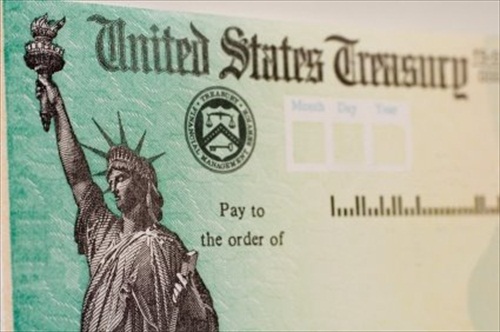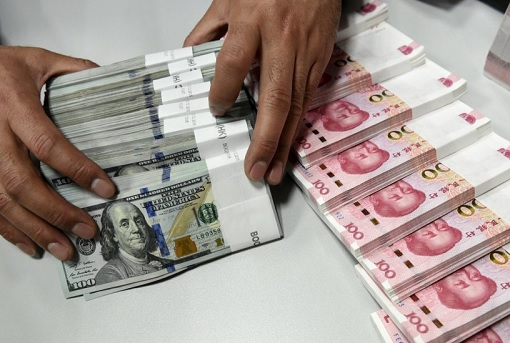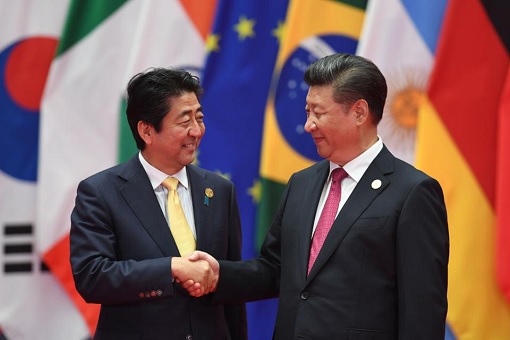As President Donald Trump embarks on a record sale of Treasury bills, notes and bonds to pay for its big tax cuts and spending, the United States hopes foreign buyers would scramble to get a chunk of American I.O.U. papers. Sadly, foreign investors appear to give a pass on the U.S. debt securities. And this could affect the U.S. economy.
According to Reuters analysis of U.S. Treasury sales data, auctions for the debt papers saw the weakest participation in nearly 10 years. It didn’t help the situation since the auction sizes are rising at the same time. The value of bond issues is set to reach a record of US$83 billion (£65 billion; RM347.7 billion) in this quarter alone.
Beginning Monday, the U.S. Treasury would auction US$129 billion in notes with maturities ranging from two to seven years. While foreign holdings have remained steady at about US$6.2 trillion (£4.86 trillion; RM25.9 trillion), what the U.S. hopes for – greater participation in the purchase of the debt papers – isn’t happening at the rate they had hoped for.

Not only China isn’t buying the U.S. Treasury notes, even ally Japan gives it a pass. Adding insult to the injury, both top foreign holders of Treasuries have actually dumped their portfolios of U.S. government bonds this year (2018). Both China and Japan – holding more than US$1 trillion each – reportedly have been scaling back their Treasuries for most of the year.
In August, China trimmed its holdings of U.S. Treasuries by about US$6 billion, to the lowest level since June 2017. The Chinese holdings of Treasury bills, notes and bonds plunged to US$1.165 trillion, from US$1.171 trillion in July. It was the third month of decline, and well below the recent high of US$1.2 trillion a year earlier.
Bond traders have been watching to see if China intentionally reduces its holdings of U.S. Treasury because of the ongoing trade war with the U.S. However, even if the Chinese had done so on purpose in retaliation, they would be smart enough not to spook the market as it could crash the bond market. Nevertheless, China has a good reason to dump the U.S. debt papers.

Beijing said, and analysts believed, the drop in the Middle Kingdom’s holdings stems in large part from spending foreign currency reserves to defend the weakening Yuan / Renminbi amid signs of slowing domestic growth, thanks to President Trump’s trade war. As such, the U.S. cannot blame the China as a “currency manipulator”.
At the same time, Japan – the second largest holder of U.S. Treasuries after China – has also dumped its holdings in August. The Japanese holdings fell to US$1.030 trillion from US$1.036 trillion in July. In the case of Japan, they have their own reason to dump the U.S. debt papers – the rising expense to hedge U.S. investments due to the strong dollar.
It’s worth to note there are four types of Treasurys, depending on maturity dates. Treasury Bills have maturities of one year or less, while Treasury Notes have maturities of between 2 to 10 years. Treasury Bonds, on the other hand, have maturity dates greater than 10 years. Treasury Inflation-Protected Securities (TIPS) maturities span 10 to 30 years.

Buyers such as China and Japan are categorised as “direct bidders”. What worries the U.S. Treasury is the huge drop in these direct bidders’ participation in auctions. John Canavan, market strategist at Stone & McCarthy Research Associates in New York, said – “Direct bids have been exceptionally low. There’s been a collapse, absolutely.”
The rise in supply of bonds as a result of persistent selling by China, and Japan for that matter, could lower prices and drive up the yield above the 3-percent mark. Higher yields will drive up the cost of borrowing for consumers and companies, causing the economy to slow down. If Trump continues to slap more tariffs on all Chinese exports, China could end up shedding more of its holdings.
In the absence of big buyers such as China or Japan, institutional investors, particularly pension funds and insurance companies, will likely remain heavy buyers of long-dated Treasuries as a stable source of income to meet their payout obligations. Still, domestic buyers are not likely to absorb the Treasuries supply that foreigners – such as China – refuse to purchase.

In October, Treasury Secretary Steven Mnuchin said he wasn’t worried about China selling its stockpile of U.S. Treasurys in retaliation over trade because there’s plenty of demand for U.S. government bonds. Perhaps Mnuchin was right. But if he was wrong, and China isn’t alone in dumping the American I.O.U. papers, the U.S. economy could become quite ugly.
Other Articles That May Interest You …
- Trump Willing To Give Saudi Crown Prince A Free Pass On Khashoggi’s Murder – In Exchange For Rewards
- Sorry Folks, None Of Goldman Sachs Bankers Will Go To Jail – They’re Untouchable White Collar Crooks
- BOOM!! U.S. Now World’s Largest Oil Producer – Oil Lost 20% In A Month, Could Drop To $40 In Bear Market
- Dow Crashes 832!! – “Geopolitical Recession” Is Here & U.S. World Order Is Ending Under Trump
- US-China Trade War Could Get Worse – Trump Needs To Distract Voters From His Sex Scandal
- China’s Latest Strategy Against Trump’s Trade War May Be Based On Sun Tzu’s Art Of War – Stays Quiet!!
- Trade War – After $50 Billion, Trump Gets Impatient And Ready To “Sailang” $505 Billion With China

|
|
November 28th, 2018 by financetwitter
|


|

|

|

|

|

|




























Comments
Add your comment now.
Leave a Reply